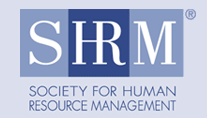Operationalizing Risk Management for AI Hiring Technologies
Seating Instructions: Seating is first-come, first-served. Reserved seating options are available for accessibility and accommodations. For detailed accessibility information, visit INFO > FAQs in the app.
HR professionals face mounting pressure to develop centralized governance policies for AI hiring tools to comply with legal obligations and meet DEI and accessibility priorities. This session will share actionable guidance to help mitigate and manage bias and discrimination risks for these tools, with a focus on the new NIST AI Risk Management Framework Inclusive Hiring Profile developed in partnership with NIST by a team of industry, advocacy, and government collaborators (anticipated release mid-2024).
Learning Objectives:
- What artificial intelligence (AI) is, and how HR professionals are using it to recruit and assess candidates.
- The landscape of AI risks in HR, including new guidance and procedures from EEOC & OFCCP and state regulatory efforts.
- Sample questions to ask vendors.
- How your organization can develop an AI governance framework to help mitigate and manage the risks that AI hiring systems may carry.
- Suggested actions, activities, and documentation for AI Hiring Tech, aligned to the NIST Risk Management Framework's four key functions (Govern, Map, Measure, and Manage).
Direct Link to Session Materials: If the speaker provides session materials, you can access them via the app, web format or at https://presentations.shrm.org/.
Live Streaming and Recording: Unless marked 'in person only,' all sessions are live-streamed on the app or web format and available for replay 30 days after the event.
Acknowledgment of Technical Issues: While rare, technical issues may occur during sessions. We appreciate your patience as we quickly address them.
Accessibility & Accommodations Information: For detailed accessibility & accommodations information, visit INFO > FAQs in the app.
Bill Curtis-Davidson

Bill Curtis-Davidson is the Director of the Partnership on Employment & Accessible Technology (PEAT), a policy initiative funded by the U.S. Department of Labor’s Office of Disability Employment Policy. PEAT helps to create a future where accessible technology is standard in all workplaces. Bill advocates for equity, inclusion, and accessibility in public and private sector efforts to develop policies, standards, and practices. He advises the Georgia Tech Human-Computer Interaction Degree Program, serves as a ForHumanity Fellow and Certified Auditor in Disability Inclusion & Accessibility, and is a member of the Partnership on AI’s Global Task Force on Inclusive AI.
Find Sessions by Day
Find Sessions by Speaker
Find Sessions by Topic
- Select Track
- Benefits
- Business Leadership
- Career Development
- Communication
- Communication Strategies
- Compensation & Benefits
- Developing a robust diversity strategy that aligns with your organization's business objectives
- Employee Benefits
- Employee Engagement
- Employment Law & Regulations
- Global HR
- Global HR
- Global HR: strategy and implementation
- HR Department of One
- HR Technology and Data Analytics
- Health Care
- Inclusion & Diversity
- Leadership & Personal Growth
- Leadership & Skill
- Managing Workplace Diversity & Inclusion
- Mental Health & Wellness
- Metrics & Analytics
- Onboarding Techniques
- Organizational development and enterprise in transformation
- People & Talent Management
- Recruitment & Talent Acquisition
- Skill Development
- Skill Enhancement
- Social Recruiting & Technology
- Strategic Communications
- Strategic HR & Organizational Design
- Strategic Planning
- Strategy
- Workforce Planning
- Workplace Culture, Empathy & Work Life Integration
- and Global Concerns
Find Sessions by Credit Type
- Select Credit Type
Find Sessions by Competency
- Select Competency
- Business (Behavioral)
- Business Acumen
- Communication
- Consultation
- Ethical Practice
- Global & Cultural Effectiveness
- HR Expertise
- HR Technical Expertise
- Interpersonal (Behavioral)
- Leadership & Navigation
- Leadership (Behavioral)
- Organization (Technical)
- People (Technical)
- Relationship Management
- Workplace (Technical)
Find Sessions by Intended Audience
- Select Intended Audience
- All Levels
- Early Career
- Executive-level
- Mid-Level
- Senior-Level

